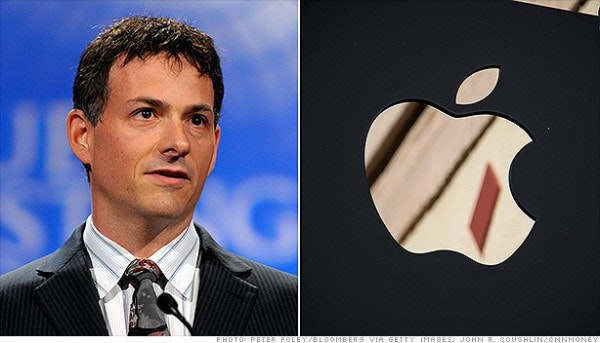Many great hedge fund investors are very well known for their activism. Through their relevant stakes in corporations, they push boards and management teams for changes within their companies. The final aim: extract more value for shareholders, all shareholders. Let’s review three cases where activist investors unlocked value for all shareholders through their actions.
Apple finally agreed to open up its cash safety box
David Einhorn, the founder of Greenlight Capital, owns 1.3 million of Apple Inc. (NASDAQ:AAPL)’s shares. He had long pushed Apple’s board towards opening the company’s huge cash box, arguing that Apple Inc. (NASDAQ:AAPL) does not need such a huge cash pile and that distributing (much) more cash would release shareholder value.

Einhorn succeeded. In a separate note from the last earnings report, Apple Inc. (NASDAQ:AAPL) announced that the Board of Directors authorized an increase in its return of capital to shareholders. Through the end of 2015, the company expects to return a total of $100 billion in the form of dividends, repurchases, and cash for restricted stock (RSUs). The cash return will be structured as follows:
(1) Share repurchases: Apple Inc. (NASDAQ:AAPL)’s share repurchase authorization was increased from $10 billion announced in 2012 to $60 billion. The repurchase authorization will last through the end of calendar 2015.
(2) Dividend increase: The Board approved a quarterly dividend of $3.05, a 15% increase (and a 2.7% cash yield). The company will have annual dividend payments of $11 billion in fiscal 2014.
(3) Restricted Stock Units settlement: In addition to the share repurchases and the increased dividend, Apple Inc. (NASDAQ:AAPL) will use approximately $1 billion to settle vesting of restricted stock.
In Apple’s case, activism paid for everyone and did so in cash.
At Procter & Gamble, powerful activist pushed for performance
Bill Ackman, founder of Pershing Square, bought 1% of The Procter & Gamble Company (NYSE:PG) last year. The objective: push for better performance.
The biggest consumer goods company in the world (with $84 billion in sales and with its $216 billion market capitalization) is making slow but steady progress towards improving its performance.
For starters, the company decided to focus on its highly profitable U.S. business, where it is showing signs of success as it gains market share. Elsewhere, share trends appear less clear, although the company has the flexibility it needs to maintain its recent pattern of beating its quarterly EPS guidance. The company’s main current operating trends are the following:
(1) U.S. market shares are improving: Nielsen data shows that most recent weighted market shares in the US are improving.
(2) That said, globally, the company is still losing share in each category. Global weighted market share is down by 3%. The company is keeping or building share in 50% of sales globally, still well below the stated medium-term goal of 65%.
(3) Management is making a conscious trade-off to over-invest on the most profitable businesses (68% of its top 40 investments are in developed markets). This is a sound decision from a portfolio mix perspective. However, this might also mean that it will take longer for the company to catch up with global peers in terms of overall group growth.
Ackman’s presence has been shaking up the company. I am sure it is a powerful presence that should help all shareholders going forward.
